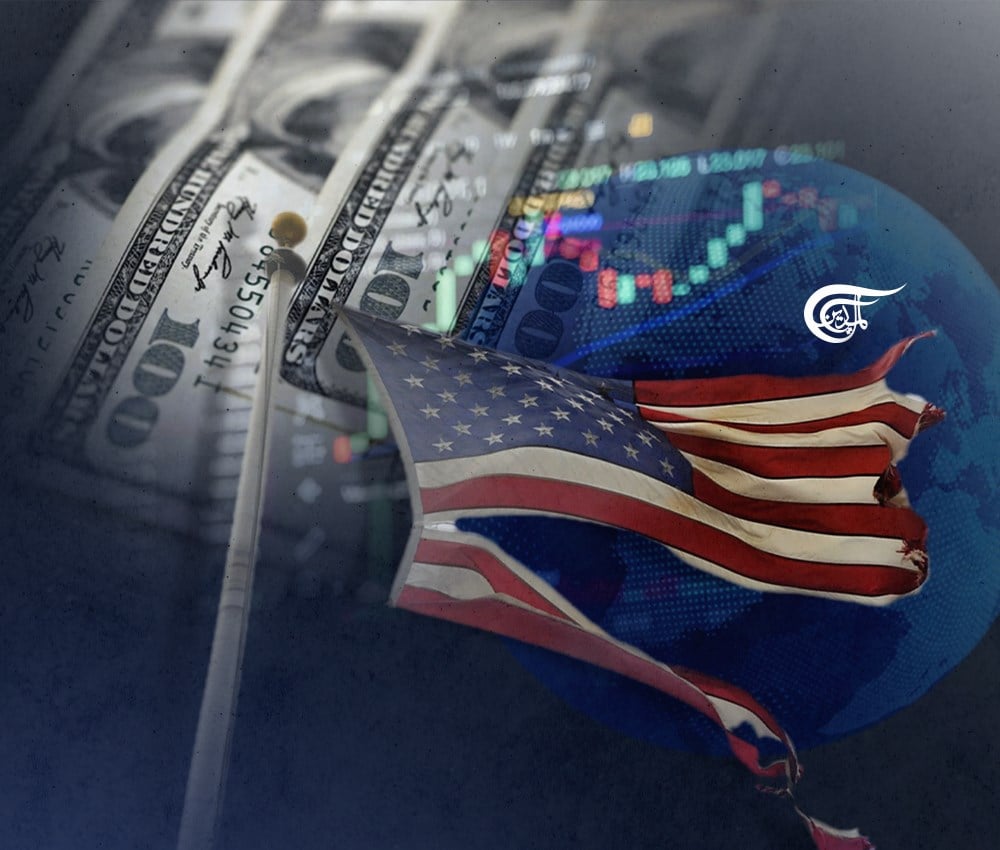Dollar and imperial rule
The unexpected and irresistible rise of China shook the world economy to its foundations.
One of the most eloquent signs of the epochal changes that are transforming the structure of the international system is the declining weight of the US dollar in the world economy. A recent Bloomberg report warned with alarm that dollar-denominated central bank reserves had shrunk "at a stunning pace" between 2001 and 2022, from 73 percent to 58 percent.[1] Some analysts go even further and estimate that since the beginning of the war in Ukraine, the weight of the dollar in world trade and in the stock of world reserves has suffered new reductions, and they toy with the idea that in the course of the next few years, perhaps less than half will be denominated in American dollars.[2]
Is this trend a signal of the inexorable collapse of the dollar and, by implication, the collapse of the US empire? The fact that the US is the world's largest importer and that its imports are paid for in dollars assures this currency a prominent role, although not as much as before, in the world economy. The international system has undergone far-reaching changes in recent years. It could be said that we are in the presence of an unprecedented acceleration of historical time that has modified the face of the economy and international politics. The relative displacement of the dollar from its privileged role enshrined in the Bretton Woods agreements, which is a thing of the past, is reported. If until the appearance of the Euro, in 1999, the dollar was the only global currency and the reserve currency by default of central banks and commercial operations of goods and services, this situation has changed dramatically, and in a short time. Of course, the explanation for this change cannot be reduced to merely monetary issues. The shift in the center of gravity of the world economy from the North Atlantic to the Asia Pacific undermined the importance of the dollar and favored the emergence of other currencies, such as the Chinese yuan, the Russian ruble, and the Japanese yen.
The unexpected and irresistible rise of China shook the world economy to its foundations. Along with this, the still least expected "resurrection of Russia" added a new seasoning to this emerging indigestible international economic and political constellation that was destined to collide with American unipolarism. This was a widespread illusion whose credibility was grounded on the belief that the collapse of the Soviet Union would inevitably condemn Russia to be a country devoid forever of any international gravitation. This was the deceptive backdrop for the “New American Century” project, which supposed that the twenty-first century would have the United States as an undisputed leader due to its economic superiority, the “soft power” derived from its cultural appeal and, not to forget, its formidable military might. Little or nothing remains of this illusion when the first quarter of a century has not yet passed.
Coming back to the issue of “de-dollarization”, a report by the Washington-based Brookings Institution asserts that the policy of "economic sanctions" (affecting more than twenty countries) imposed by the White House to penalize governments, public officials or enterprises, public or private in countries regarded as enemies or unfriendly to the Washington interest has pushed many countries to seek other means of payment, alternatives to the dollar, precisely to neutralize the effect of US sanctions on their business and financial transactions.[3] Previously, Alexander Cooley and Daniel H. Nexon had written in Foreign Affairs that “the Trump administration’s trade war with China has given Beijing additional incentives to support Russian efforts to develop alternatives to the Western-controlled swift, the international payment system and dollar-denominated trade so as to undermine the global reach of U.S. sanctions regimes.”[4] A few pages later, these authors conclude with a hopeful but nuanced expectation: the American foreign policy should be able to “exercise significant influence on international order even in the absence of global hegemony. But to succeed the add, Washington must recognize that the world no longer resembles the historically anomalous period of the 1990s and the first decade of this century. The unipolar moment has passed, and it isn’t coming back.”[5] Those days will not return for the dollar either, despite the fact that Washington will do everything possible to prevent this detrimental outcome for its global interests.
References:
[1] Matthew Burgess, in https://www.bloomberg.com/news/articles/2023-04-18/de-dollarization-is-happening-at-a-stunning-pace-jen-says
[2] Amit Bansal, “World faces threat of economic catastrophe”, March 19, 2023, in https://sundayguardianlive.com/news/de-dollarization-world-faces-threat-of-economic-catastrophe
[3] https://www.brookings.edu/research/economic-sanctions-too-much-of-a-bad-thing/
[4] “How hegemony ends”, Foreign Affairs, July-August 2020, p. 150 https://www.foreignaffairs.com/articles/united-states/2020-06-09/how-hegemony-ends?
[5] Ibid.. p. 156

 Atilio A. Boron
Atilio A. Boron
 5 Min Read
5 Min Read












